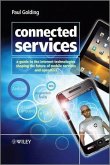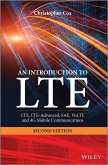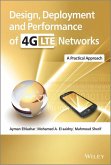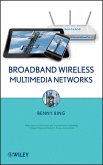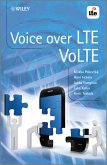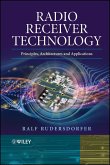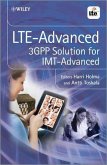Includes a preface written by Professor Leonard Kleinrock, Distinguished Professor of Computer Science, UCLA, USA
This book discusses and explores the concept of mobile cloud, creating an inspiring research space for exploiting opportunistic resource sharing, and covering from theoretical research approaches to the development of commercially profitable ideas.
A mobile cloud is a cooperative arrangement of dynamically connected communication nodes sharing opportunistic resources. In this book, authors provide a comprehensive and motivating overview of this rapidly emerging technology. The book explores how distributed resources can be shared by mobile users in very different ways and for various purposes. The book provides many stimulating examples of resource-sharing applications. Enabling technologies for mobile clouds are also discussed, highlighting the key role of network coding. Mobile clouds have the potential to enhance communications performance, improve utilization of resources and create flexible platforms to share resources in very novel ways.
Energy efficient aspects of mobile clouds are discussed in detail, showing how being cooperative can bring mobile users significant energy saving. The book presents and discusses multiple examples of mobile clouds applications, based on both existing commercial initiatives as well as proof-of-concept test-beds. Visions and prospects are also discussed, paving the way for further development. As mobile networks and social networks become more and more reliant on each other, the concept of resource sharing takes a wider and deeper meaning, creating the foundations for a global real-time multidimensional resource pool, the underlying infrastructure for shareconomy. Above all, this is an inspiring book for anyone who is concerned about the future of wireless and mobile communications networks and their relationship with Social networks.
Key Features:
This book is an excellent resource for wireless/networking researchers in industry and academia, students and mobile phone programmers. Managers interested in new technology developments, service providers, network operators, and those working in the gaming industry will also find the book insightful.
This book discusses and explores the concept of mobile cloud, creating an inspiring research space for exploiting opportunistic resource sharing, and covering from theoretical research approaches to the development of commercially profitable ideas.
A mobile cloud is a cooperative arrangement of dynamically connected communication nodes sharing opportunistic resources. In this book, authors provide a comprehensive and motivating overview of this rapidly emerging technology. The book explores how distributed resources can be shared by mobile users in very different ways and for various purposes. The book provides many stimulating examples of resource-sharing applications. Enabling technologies for mobile clouds are also discussed, highlighting the key role of network coding. Mobile clouds have the potential to enhance communications performance, improve utilization of resources and create flexible platforms to share resources in very novel ways.
Energy efficient aspects of mobile clouds are discussed in detail, showing how being cooperative can bring mobile users significant energy saving. The book presents and discusses multiple examples of mobile clouds applications, based on both existing commercial initiatives as well as proof-of-concept test-beds. Visions and prospects are also discussed, paving the way for further development. As mobile networks and social networks become more and more reliant on each other, the concept of resource sharing takes a wider and deeper meaning, creating the foundations for a global real-time multidimensional resource pool, the underlying infrastructure for shareconomy. Above all, this is an inspiring book for anyone who is concerned about the future of wireless and mobile communications networks and their relationship with Social networks.
Key Features:
- Provides fundamental ideas and promising concepts for exploiting opportunistic cooperation and cognition in wireless and mobile networks
- Gives clear definitions of mobile clouds from different perspectives
- Associates mobile and wireless networks with social networks, creating a vast fertile ground for novel developments in both research and practical applications
- Considers research directions, emerging trends and visions
This book is an excellent resource for wireless/networking researchers in industry and academia, students and mobile phone programmers. Managers interested in new technology developments, service providers, network operators, and those working in the gaming industry will also find the book insightful.
Dieser Download kann aus rechtlichen Gründen nur mit Rechnungsadresse in D ausgeliefert werden.



